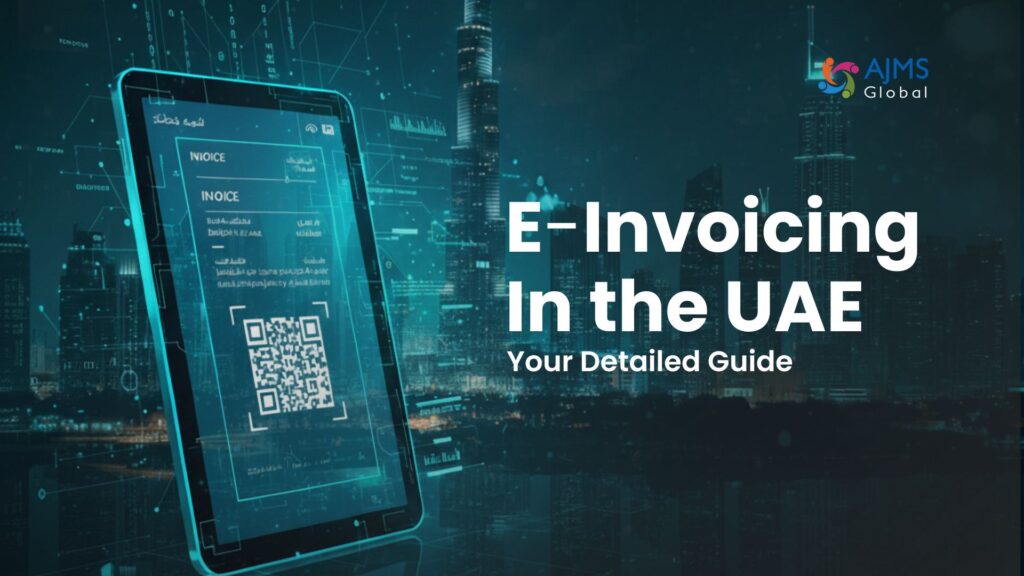The business landscape in the United Arab Emirates is undergoing a significant digital transformation. A central part of this evolution is the nationwide move to electronic invoicing (e-invoicing), which will become mandatory for businesses starting from July 2026. This initiative, driven by the UAE’s vision for a modern and efficient economy, will change how companies issue, receive, and process their invoices.
For business owners and finance managers, understanding the details of e-invoicing in UAE is crucial. This is not just a minor regulatory update; it’s a fundamental shift in financial operations. This guide provides a detailed breakdown of what e-invoicing is, why it’s being implemented, and what it means for your business.
Table of Contents
ToggleWhat Exactly is an E-Invoice?
First, it is essential to understand that an e-invoice is fundamentally different from a PDF or a scanned paper invoice sent via email. While those are digital documents, they are considered “unstructured.” This means a person has to manually read the information and type it into an accounting system.
An e-invoice, under the new UAE mandate, is a structured data file. It is generated in a machine-readable format, such as XML. Think of it like this:
- A PDF invoice is like a digital picture of a paper document. A computer sees it as an image, but doesn’t understand what the numbers or words mean.
- An e-invoice (XML file) is like a coded message that accounting systems are built to understand. When your system sends an e-invoice, your customer’s system can read and process it instantly and automatically, without any human intervention.
This structured data is exchanged through a secure, government-approved network (Accredited Service Provider), ensuring that every transaction is verified and recorded correctly.
Why is the UAE Government Introducing E-Invoicing?
The UAE government, through the Ministry of Finance (MoF) and the Federal Tax Authority (FTA), is rolling out this system to achieve several key national and business objectives:
- Boost Economic Efficiency: The primary goal is to automate and accelerate the entire invoicing lifecycle. By removing manual steps, businesses can get paid faster, which directly improves their cash flow and financial health.
- Drastically Reduce Errors: Manual data entry is a major source of business errors, from simple typos in amounts to incorrect VAT calculations. These mistakes lead to payment delays, disputes, and wasted administrative time. E-invoicing automation minimizes these human errors, ensuring greater accuracy.
- Simplify VAT Compliance: The new system is designed to make VAT reporting more straightforward and accurate. Since invoice data is reported to the FTA in near real-time, it can be used to pre-populate sections of VAT returns, making compliance easier and reducing the risk of audits or penalties.
- Enhance Transparency and Security: E-invoicing creates a secure, unchangeable digital record for every transaction. This makes it extremely difficult for fraudulent or fake invoices to be created and processed, protecting businesses from common scams like invoice interception.
- Promote a Sustainable, Paperless Economy: By eliminating the need for paper, printing, postage, and physical document storage, the e-invoicing mandate strongly supports the UAE’s environmental and sustainability goals.
The Official Timeline for E-Invoicing in the UAE
The mandatory start date for the first phase of e-invoicing in the UAE is July 2026. The implementation will be rolled out in phases, likely based on company size or turnover, to give businesses adequate time to prepare and adapt. The government is expected to provide more specific details about the phasing schedule closer to the date.
Which Businesses Will Be Affected?
The e-invoicing mandate will apply to all VAT-registered businesses for the following types of transactions:
- Business-to-Business (B2B): Invoices issued from your company to another business.
- Business-to-Government (B2G): Invoices issued from your company to a government entity.
It is important to note that invoices for sales to individual consumers (B2C) are not included in the initial scope of the mandate, though this could change in future phases.
Preparing for this change requires expertise and planning. Consulting with specialists like AJMS Global can provide a clear roadmap for your business, ensuring you are not just compliant, but also ready to take full advantage of this new digital framework.

